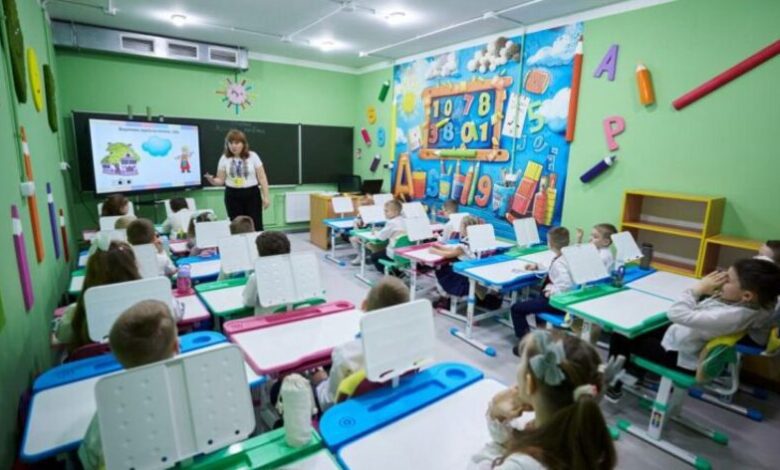Over 5,000 Kharkiv first-graders will study in underground schools due to the constant threat of shelling

Kharkiv is one of the largest cities in Ukraine, which has been under the constant threat of missile and drone attacks since the first days of the full-scale invasion. The city’s infrastructure suffered serious damage, and schools became one of the most vulnerable facilities. Parents, children and teachers faced a difficult choice: safety or education. During the war, Kharkiv’s educational system tried to find a compromise between these requirements. With the start of the new school year, that task becomes even more difficult, as the city expects a record number of first-graders ready to learn online — in an environment where traditional school buildings remain vulnerable to gunfire.
As of July 2025, more than 5,250 children were enrolled in the first grades of Kharkiv underground schools. About this reported in the Kharkiv City Council with reference to the words of Mayor Ihor Terekhov. These children are those whose parents have made the decision that offline education in a war is a priority for them. And it is for them that special conditions have been created in the city: underground schools that function in safe storage facilities. The city authorities confirmed that on September 1, these first-graders will begin studying in shelters equipped as full-fledged educational spaces. In general, there are four such schools operating in the city, and three more should be operational by the fall. Some classrooms are also organized at Kharkiv metro stations.
Mayor of Kharkiv Igor Terekhov emphasized that the demand for full-time education in the city is extremely high, despite the war situation. According to him, almost 91 thousand schoolchildren will continue to study remotely, and about 15 thousand will choose a mixed form – they will spend several days a week in underground schools, the rest – will study online. This model allows you to combine the minimally necessary social contact between children and teachers with the requirement of safety. But it also imposes an additional burden on the educational system, which must adapt not only the program, but also the format of education to the realities of underground classes.
The creation of such learning spaces requires not only material costs, but also careful organization. Cabinets must be equipped according to standards: ventilation, lighting, water and food supply, means of communication, basic comfort. But at the same time, these are spaces devoid of natural light, without a traditional school yard or physical activity at recess. All this affects the psycho-emotional state of children, especially first-graders, who are already going through a significant transformation in their lifestyle.
Parents do not have much choice: those who remained in Kharkiv are forced to focus not on educational strategy, but on security considerations. Distance education is not always effective – especially for the youngest students who need constant attention, emotional contact and organization of the environment. But sending a child to school every day without shelter is an option that most people no longer consider. In this sense, the subterranean form has become a compromise that tries to preserve elements of ordinary life outside of ordinary reality.
The system of underground education is not a unique project for Ukraine: models of training in shelters are being developed in various regions of the Eastern Front from 2022. But it was Kharkiv that became one of the first large cities that implemented this model on the scale of thousands of students. This requires a significant human resource: not only teachers, but also psychologists, guards, technical personnel, doctors are involved in the daily support of the school process in the conditions of war.
Despite the difficulties, the Kharkiv model shows that the educational process in the front-line zone is possible. However, it needs the constant support of the state, international donors, volunteers, and most importantly, the trust and patience of the citizens themselves. The successful start of the school year depends not only on buildings and furniture, but on whether the school, even located underground, can give the child a sense of normality, security and predictability. And this is a task that falls not only on the city administration, but on the entire country.





